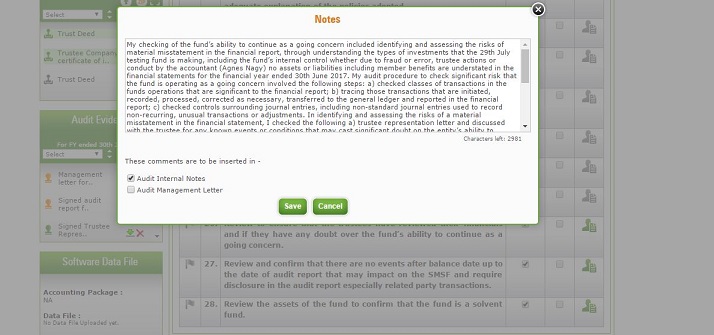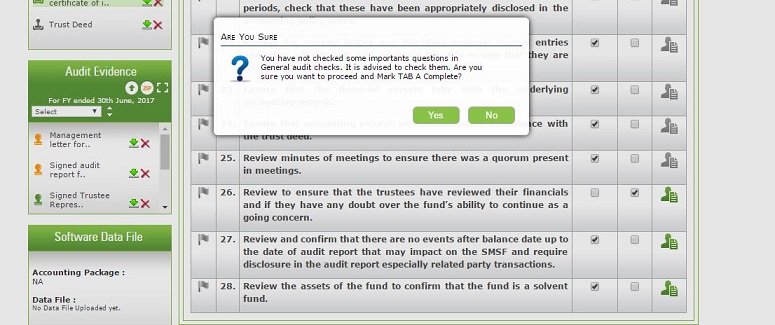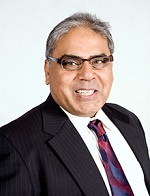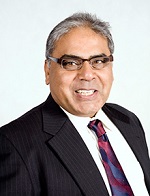|
||||||
| click here to unsubscribe from the mailing list |
Phones are not working due to Optus outage, Please click on Live chat Button.
- $139 + ASIC FEECompany Registration
- Fr $55 + ASIC FEEBusiness Name Registration
- $148.5 (Incl. GST)SMSF
Trust Deed - Fr $165 (Incl. GST)SMSF
Tools- Reduce cost of Documents
$55.00 - Pay By Vouchers - Information
- Commence Account Based Pension
($248.5 incl. GST) - Deed of Confirmation
($248.5 incl. GST) - Add Member to SMSF
($248.5 incl. GST) - Delete Member from SMSF
($248.5 incl. GST) - Change Individual Trustee to Corporate
($248.5 incl. GST) - Change Corporate Trustee to Individuals
($248.5 incl. GST) - Change Corporate Trustee
($248.5 incl. GST) - Declaration of Trust
($220 incl. GST) - SMSF Loan Agreement
($220 incl. GST) - Binding Death Nomination
($75 incl. GST)
- Reduce cost of Documents
- $165 (Incl. GST)SMSF
Borrowing - $97.50 (Incl. GST)Actuarial
Certificate - $495 (Incl. GST)Quantity
Surveyor Rep - Fr $125 (Incl. GST)Trusts
- Reduce cost of Documents
$55.00 - Pay By Vouchers - Information
- Discretionary Trust Deed
($148.5 incl. GST)
($250 incl. GST with Company Trustee) - How Discretionary Trusts work
- Unit Trust Deed
($148.5 incl. GST)
($250 incl. GST with Company Trustee) - How Unit Trusts work
- Fixed Unit Trust Deed
($275 incl. GST)
($372.5 incl. GST with Company Trustee) - How Fixed Unit Trusts work
- Why Use Us
- Document Printing
- Reduce cost of Documents
- FreeJobs
- Our
Fees
-
Register a Company or Business Name 24/7,
we have a direct link with ASICHelping you to set up the right business structure online
Fast, Simple and Easy application like never before
Register Now -
Full technical support for Family or Discretionary Trust,
Unit Trust and Fixed Unit TrustFully online, legally compliant trust deed instantly delivered to your inbox
One stop solution for your trust structure needs
Register Now -
Simplify SMSF management & updates
with dedicated SMSF SpecialistCreate the most technically robust
Self Managed Super Fund trust deed, online in less than 20 minutesMake changes easily for smoother running of your SMSF by using our SMSF tools
Register Now -
Get Trusted & Accurate SMSF Borrowing documents
and Actuarial Certificates onlineGet your borrowing documents ready with SMSF Experts
specialised in Limited Recourse BorrowingOrder instant Actuarial certificates online to meet your actuarial certificate requirements
Register Now -
Order a Quantity Surveyor Report online
for your investment property anywhere in AustraliaPhysical visit. No online spreadsheet
Claim maximum for your Investment Property
Register Now

.png)

 When the use of the going concern basis of accounting is appropriate, assets and liabilities are recorded on the basis that the entity will be able to realise its assets and discharge its liabilities in the normal course of business.
When the use of the going concern basis of accounting is appropriate, assets and liabilities are recorded on the basis that the entity will be able to realise its assets and discharge its liabilities in the normal course of business. 2) Since any (or all) trustees can die at any time and their death benefit paid out compulsorily to beneficiaries, in particular Subregulation 6.21(1) of the SISR provides that a member's benefits in a regulated superannuation fund must be 'cashed' as soon as practicable after the death of the member (or the benefits are rolled over as soon as practicable for immediate 'cashing', in accordance with subregulation 6.21(3) of the SISR).
2) Since any (or all) trustees can die at any time and their death benefit paid out compulsorily to beneficiaries, in particular Subregulation 6.21(1) of the SISR provides that a member's benefits in a regulated superannuation fund must be 'cashed' as soon as practicable after the death of the member (or the benefits are rolled over as soon as practicable for immediate 'cashing', in accordance with subregulation 6.21(3) of the SISR).  What we have witnessed in the recent past is that reviewers from professional bodies insist that the SMSF auditor includes in his checklist audit procedures to check on the going concern capability of an SMSF. Auditors are being asked by reviewers to evaluate trustees procedure of examining the SMSF's going concern ability in the financial statements and design their own checklist and audit procedure to check if the financial statements are prepared under the going concern accounting framework and document these audit procedures in their working papers.
What we have witnessed in the recent past is that reviewers from professional bodies insist that the SMSF auditor includes in his checklist audit procedures to check on the going concern capability of an SMSF. Auditors are being asked by reviewers to evaluate trustees procedure of examining the SMSF's going concern ability in the financial statements and design their own checklist and audit procedure to check if the financial statements are prepared under the going concern accounting framework and document these audit procedures in their working papers.


.jpg)


 SMSF Auditors spend too much time in financial audit and completing manual audit working papers, our online software does most of this work automatically & saves half your time as compared to traditional auditing methods. It checks closing share prices, dividends received from ASX and all mundane tasks of signing, scanning & mailing of audit report, Mgt. letter, engagement letter, Invoice & contravention reports etc. are automated with one click of a mouse.
SMSF Auditors spend too much time in financial audit and completing manual audit working papers, our online software does most of this work automatically & saves half your time as compared to traditional auditing methods. It checks closing share prices, dividends received from ASX and all mundane tasks of signing, scanning & mailing of audit report, Mgt. letter, engagement letter, Invoice & contravention reports etc. are automated with one click of a mouse.

